UPEI dedicates observatory to former astronomy professor

The motor kicks in, slowly raising the viewing hatch to reveal the celestial bodies shining on this crisp January night — ready for their close-up from the Celestron CPC 1100 telescope mounted in the University of Prince Edward Island observatory.
The silver dome-shaped tower sits atop Memorial Hall on the Charlottetown campus.
Megan Glover, a laboratory technician in the physics department, controls the direction of the telescope using a computerized control pad to find the bright cratered surface of the first quarter moon.
Even thought the opening of the dome and telescope can swivel in all directions, Glover said they are still somewhat limited as to what a group of students can see in the artificially illuminated city skies.

"We're still able to show them things like planets, some star clusters, nebula, the occasional galaxy if the weather is cooperating enough," Glover said. "It's just a way for them to have a firsthand view of something — rather than just seeing it as a picture on a textbook or a website."
Behind her, placed on a wall near the exit of the 2.5-metre diameter dome, is a newly added plaque.
"The Earl L. Wonnacott Observatory," it reads, dedicating the structure to the former professor who was instrumental in getting it installed in 1980.
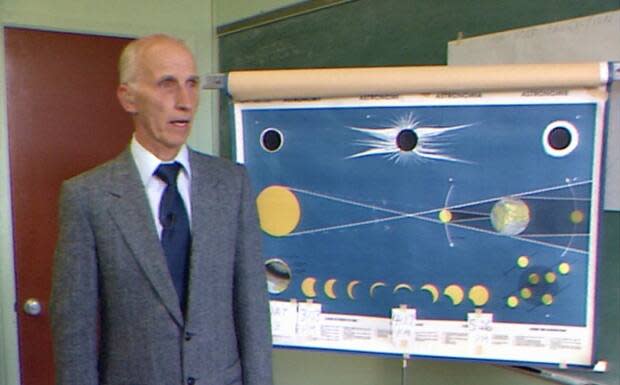
'Just a tremendous experience'
Wonnacott began teaching at Prince of Wales College in the 1940s. He continued as a PWC professor — with breaks to upgrade his own education, as well as serve in the Second World War — until the college merged with St. Dunstan's University to form UPEI in 1969.
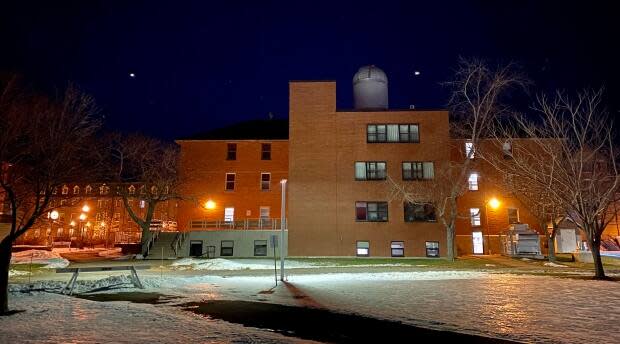
There he taught physics and astronomy and was the chair of the physics department in the 1980s.
Bill Whelan, current chair of the department, took one of Wonnacott's two astronomy courses as an undergrad and calls it "just a tremendous experience.
"He had a very soft-spoken, very gentle manner and such an enthusiasm for physics and astronomy. He just sort of… brought you right in and helped you experience the wonders of looking up at the sky."
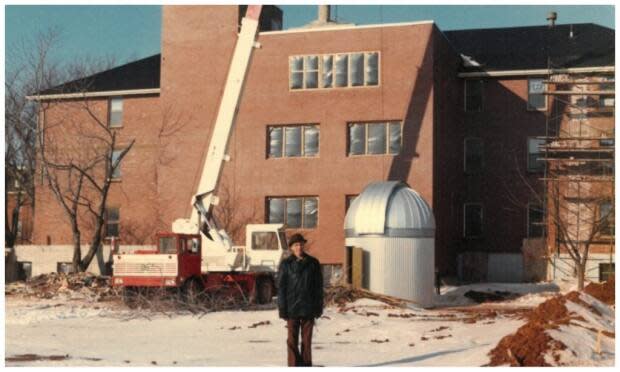
In 1980, Wonnacott was able to get funding for the new observatory. It would consist of a telescope, a dome to cover it and all the infrastructure to support it in a sheltered space on top of a new wing being built at Memorial Hall.
"He said that he and his student assistants often got very excited about what they were seeing and they hoped that the people that were visiting would get just as excited — and he thought that it would rub off a little bit on them," Glover said, recalling a paper Wonnacott wrote about the observatory in the early 1980s.
"I think that's what we continue to do, is let people see some of these astronomical sites for themselves and get interested and it's a great way to get interested in science."

Wonnacott was a founding member of the Royal Astronomical Society, Charlottetown Centre.
After he retired, the Professor Earl Wonnacott Prize in astronomy was established in his honour in 1998. He was named a Founder of the University in 2001 for his contributions to education in the province.
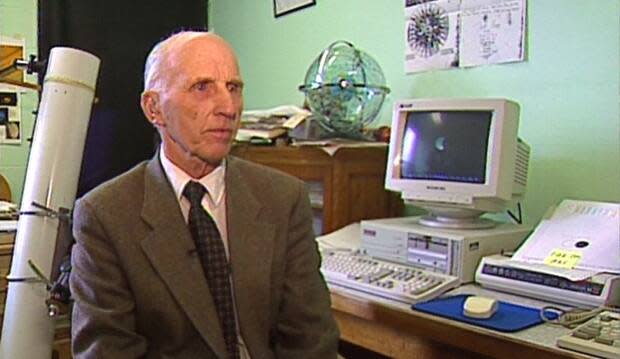
He continued to teach astronomy into the early 2000s, and would still show up at public viewing events to join in spreading knowledge about astronomy.
Whelan recalls a 2017 solar viewing event, when the university partnered with the Charlottetown chapter of the Royal Astronomical Society to set up devices and telescopes to help the public safely take in the event.
They were expecting a couple dozen people to show up, but hundreds of community members attended, including Wonnacott.

"I can tell you that it electrified a lot of people who attended because many hadn't seen him in a number of years," Whalen said.
"We were very pleased to see him there. He has always shared his knowledge about solar eclipses in these solar events and he just elevated the entire event."
Wonnacott died on October 18, 2019.
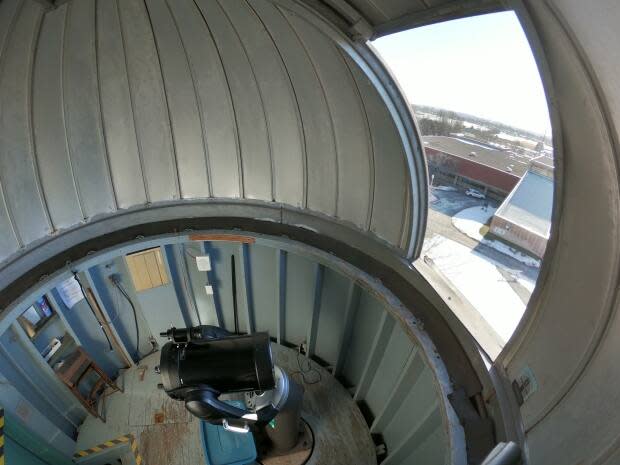
To commemorate the 40th year of the Observatory, in 2020 the physics department proposed to the university that it be dedicated in Wonnacott's honour.
The university agreed and the dedication was made in October.
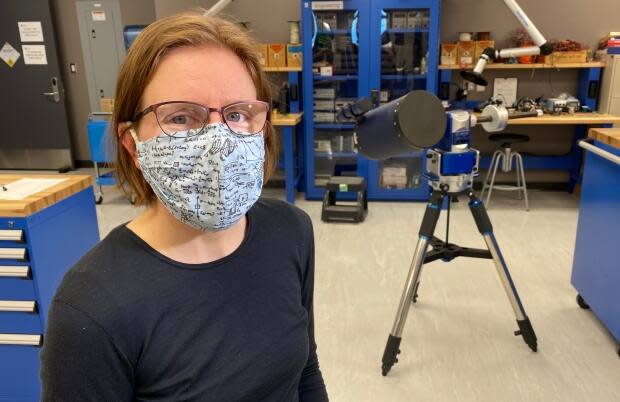
Sharing the sky with the public
Over the years, the observatory has been used often for public viewings, either for the general public or for community groups. Glover said that continues to respect Wonnacott's original intention of helping people see things in the sky with their own eyes.
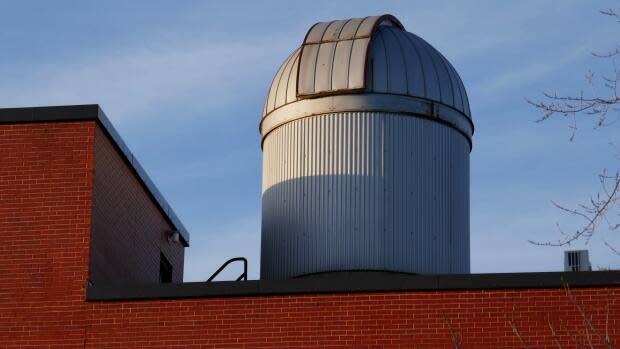
It also lets those leading the public viewings to share in the magic of someone's first-timer delight.
"It can be a bit like getting to see it yourself again for the first time," said Glover.
"When someone else gets very excited about seeing it, it's a little bit — kind of gets you caught up in it as well."
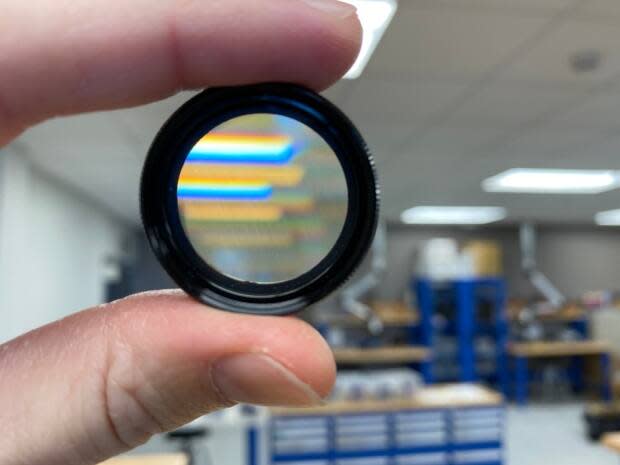
New camera equipment, including a special filter, will help students collect the different spectrum of light from the stars.
"Our hope is that students will be able to get a spectrum from a star themselves and study it and learn what they can about the star," Glover said.
More from CBC P.E.I.

